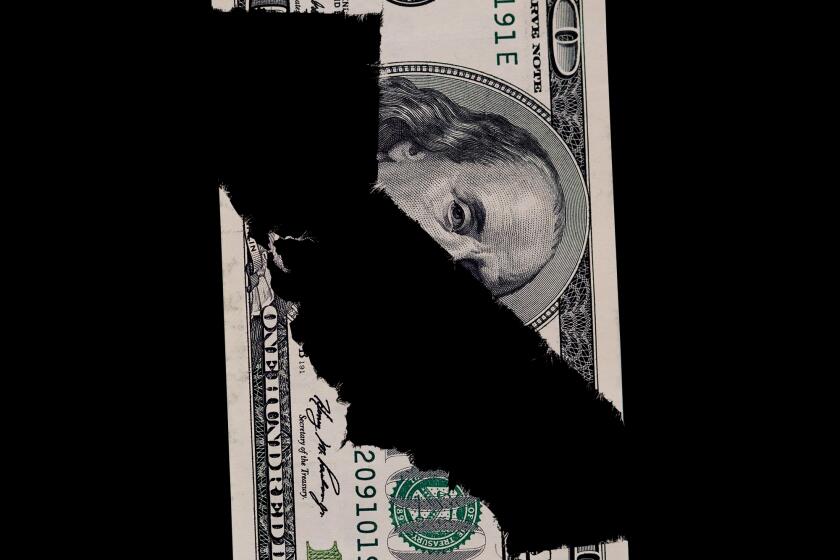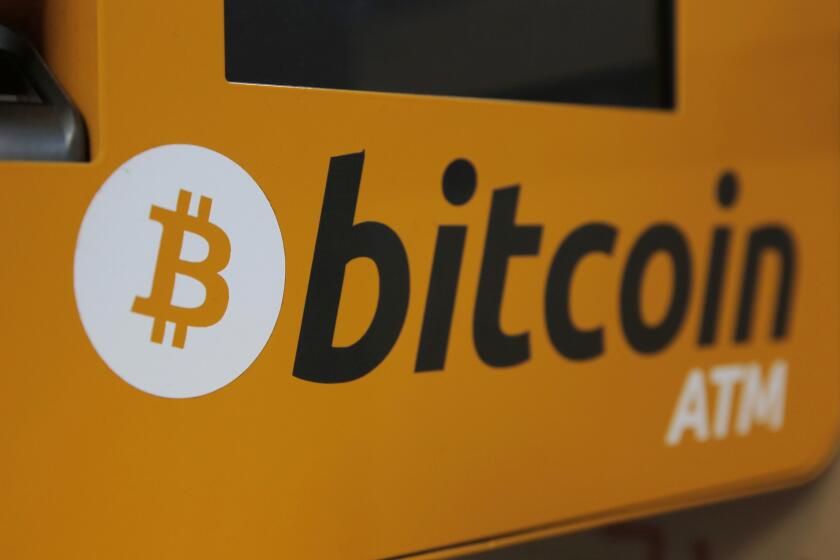SEC payouts to whistleblowers plummet despite record surge in tips

The number of whistleblowers receiving awards from the Securities and Exchange Commission dropped sharply in fiscal year 2023, even as more tips poured in than ever before, and a single informant received the largest payout in agency history.
The agency received more than 18,000 tips in the fiscal year that ended Sept. 30, a 50% jump from the previous year, according to the SEC whistleblower program’s annual report to Congress. But only 68 tipsters got any money, compared with more than 100 in each of the previous two years.
Interviews with attorneys who participate in the program and a review of SEC decisions — along with court cases challenging some of those decisions — portray a program straining under the weight of its success. The lure of huge payouts, such as the $279 million that went to one tipster last year, with no growth in the program’s staffing or budget, may be taxing the SEC’s ability to keep up with the intent of the legislation authorizing it, attorneys say.
“They need more resources. The SEC is very good at evaluating whistleblower disclosures and prioritizing action, but surely when you have 18,000 tips, there’s a real risk that serious harm to investors will be missed,” Washington attorney Jason Zuckerman of Zuckerman Law said.
Written into the Dodd-Frank financial reform law of 2010, the whistleblower law was created to make sure tips about financial wrongdoing aren’t ignored, as they were before Bernie Madoff’s $64.8-billion Ponzi scheme unraveled.
At its core, the SEC says, its whistleblower program is about money, both the amount recovered on behalf of defrauded investors and the amount awarded to those who helped to expose fraud. Since its 2010 inception, the program has recovered more than $6 billion and paid out nearly $2 billion to informants.
Last year it awarded nearly $600 million, although more than half came in just two awards. One was the $279 million to the tipster credited with uncovering a $1-billion fraud at Swedish telecom LM Ericsson. In another instance, $104 million was shared by “seven whistleblowers, including foreign nationals … for reporting misconduct at an entity’s subsidiaries in three jurisdictions,” the agency said in its annual report.
Celebrity real estate broker and ‘Real Housewives’ regular Mauricio Umansky has settled the lawsuit over his $70-million flip of a Malibu mansion.
“This is the most successful anti-corruption program ever established, and when the rules were developed in 2010-11, the way the program has grown was not anticipated,” said whistleblower attorney Stephen Kohn of Kohn, Kohn & Colapinto. “So, there are numerous holes that need to be addressed by Congress and the agency’s own rule-making.”
Among them, Kohn said, are delays that can keep whistleblowers waiting years to be paid even after the SEC sanctions a company, the difficulty whistleblowers face when appealing an SEC decision, and the lack of information tipsters receive while their claims are processed.
As the program expands, the amount of information the SEC shares with the public keeps shrinking. The agency told Bloomberg that it doesn’t track how many analysts who are not company insiders, such as short sellers, received awards or how many awards went to claimants representing themselves. It also won’t release the number of attorneys working in the whistleblower office. All of that information has been included in previous annual reports.
“OWB includes in the annual report the statistics that we believe are the most useful metrics for understanding trends in the Whistleblower Program,” the agency said in response to written questions. “We have modified which statistics we have included over time, and we anticipate revisiting which statistics to include in the future based on public feedback to our annual report.”
In a reversal from past decades, more college graduates and professionals are moving out of California than coming into it to escape the higher taxes and cost of living.
The SEC also took the unprecedented step this year of not contesting a motion to seal an appeals court ruling critical of an SEC decision to award $14 million to Carson Block, chief executive of short-seller Muddy Waters Capital. SEC staff found that Block didn’t qualify as a whistleblower under the agency’s own criteria. And it denied a Freedom of Information Act request to identify the attorney who represented a client who was awarded $20 million, even after the agency found that “much of the information Claimant provided was already known to the Enforcement staff, and the new, helpful information Claimant provided was fairly limited.”
A 2022 Bloomberg investigation found that the SEC’s emphasis on secrecy went far beyond its legal mandate to protect whistleblowers’ identities; it often ignored its own rules when making decisions; and law firms employing three former SEC officials had been awarded more than $420 million on behalf of clients.
The SEC follows a two-step process when handling whistleblower tips. First, they are vetted by the enforcement division. If an action is successful, whistleblowers then submit paperwork to the Office of the Whistleblower, which determines whether they should be paid for their efforts, and how much. By law, claimants are entitled to 10% to 30% of any money recovered.
The process can take several years, and whistleblower attorneys have urged Congress to allocate more money to speed it up.
For now, Kohn and Zuckerman each said other measures are needed. First, Congress needs to make sure whistleblowers who expose large corporate fraud are rewarded if the company at the heart of the scandal goes bankrupt.
In March, the SEC approved awards for two whistleblowers who separately uncovered a $1-billion fraud by a Texas viatical company, Life Partners. John McPherson, an outside analyst and investor, and John Barr, a victim of the fraud, spent years helping the SEC investigate, prosecute, and win multimillion-dollar judgments against the company.
But Life Partners declared bankruptcy soon after the SEC sanctions. Even though a bankruptcy court eventually returned about $1 billion to investors, the SEC said McPherson and Barr aren’t entitled to any of that money.
The men have asked the U.S. Court of Appeals for the 5th Circuit to overturn that decision, and the case is pending.
“If the fraud is so big that it sends a company into bankruptcy, that is telling you that these whistleblowers did a tremendous public service,” Kohn said. “How can you decide not to pay whistleblowers when you recover hundreds of millions of dollars?”
The point of the whistleblower program, and any changes Congress may make, is not only to protect tipsters but also to guard the stability of the U.S. financial markets, Zuckerman said. One easy fix, he said, would be to allow SEC enforcement staff to provide more updates to whistleblowers, who can wait for years without knowing where the investigation stands.
“U.S. capital markets are the envy of the world because there is the assumption that there is rigorous enforcement of U.S. securities laws,” Zuckerman said. “The whistleblower program has been tremendously successful, and I think the most important thing is to make sure it has the resources it needs to reward and protect people who put a lot on the line to come forward.”
More to Read
Inside the business of entertainment
The Wide Shot brings you news, analysis and insights on everything from streaming wars to production — and what it all means for the future.
You may occasionally receive promotional content from the Los Angeles Times.












